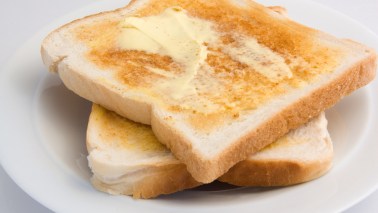Most modern biographers feed off celebrity like vampires let loose in a blood bank. That is why their books sell: they give readers the illusion of intimacy with people they will never know. Alexander Masters is different. He specialises in what one might call ‘marginal biography’, devoting hundreds of pages to individuals who live on the frayed edges of society, and often seem to be on the edge in other ways besides.
In Stuart: A Life Backwards, he wrote about a sharp-witted down-and-out whose life had been damaged beyond repair; with Simon: The Genius in My Basement, his focus switched to a dropout mathematician who spent his days eating tinned kippers in a basement stuffed with old maps and plastic bags. In both books, with a mixture of puzzled compassion and bumbling good humour, Masters revealed a talent for examining lives that barely registered as a blip on most people’s radar. Take the trouble to get to know someone, he suggested, and eventually you come to realise that even the unlikeliest of people can turn out to be heroes in disguise.
His latest subject is his most challenging yet. He doesn’t meet her until the final pages, and she remains a shadowy presence throughout, known to him only through thousands of her diary entries. The result is an attempt to write the life of someone for whom ‘life’ and ‘writing’ have become richly confused categories. It is playful, unsettling and altogether compelling.
The story begins in 2001, when two friends discover — here the book’s subtitle is something of a plot spoiler — a stash of 148 diaries in a Cambridge skip. They pass their find onto Masters, and he chooses one at random. Dated 1960, it is ‘an ordinary pocket notebook’ that has been ‘ambushed by a person’s desperation to record his or her life’. Crammed with handwriting, and bubbling over with afterthoughts and enclosures, when he opens it the writer’s life spills out on the page with all the energy of ‘a boy stamping on fresh snow’. Other notebooks include sketches and confessions (‘I just wish I could put my hands round his throat and strangle him’), but no clues as to who the writer is. As Masters quickly realises, the paradox of a diary is that it is such an intimate record there is no need to explain who you are. Not until the writer describes her first period is it even clear that she is not a he.
It is this combination of specificity and anonymity that Masters especially relishes. ‘I wanted to know what the women I passed in the street or sat beside on the train were thinking,’ he decides, ‘and these books, I thought, would tell me.’ Actually, for a while he treats the diaries more like a huge inkblot onto which he can project any number of private fantasies. He notices that the writer has a crush on John Gielgud; he spots potentially revealing anecdotes (‘March, 1959: Archbishop Ramsey gets into her bed’); he highlights entries in different coloured pens (‘Mother says I look like a sick ostrich’, or the assertion that Dennis Nilsen ‘could have been a novelist, if he hadn’t turned to murdering’), until the pages start to look like ‘a municipal flowerbed’.
Eventually he decides to find out who this word-hungry stranger is. He employs a graphologist, whose expert opinion is that ‘The person who has handwriting like this is a complete nutter.’ He assembles her birthday entries into a chapter that rushes from 13 to 62 in five sad, staccato pages. He talks to a private detective, who notices that her handwriting gets progressively smaller as she drifts into lonely middle age, as if she was trying to make it an appropriate vehicle for her own diminished life. And for several years he continues to read the diaries themselves, stitching together the life of someone who appears to have started merely by recording the events of each day, but ended by taking refuge in her diary as a far more controllable substitute for them.
It isn’t hard to see why Masters was so seduced. In tone the diaries range from the forced chirpiness of a real-life Bridget Jones (‘Dreadful day… I have eaten most of the cakes myself’) to a splendid Beckettian gloom, where ‘I had reheated cauliflower stalks for supper’ is trumped three days later by ‘I have just started a new cauliflower’. As Masters puts it, reading these entries is ‘like listening to a tomb breathe’. Repeatedly, the writer dreams up exciting alternative lives for herself: ‘How I wish I was Barbara Windsor’, or ‘My life would be very, very different indeed if I was the BBC Food and Drink presenter Jilly Goolden.’ By the time Masters finally arranges the 148 diaries into chronological order, and realises that they represent only a fraction of an output he estimates at some 40,000,000 words, it is hard to escape the feeling that what he has discovered is a real-life version of Tristram Shandy, in which the diarist is forever trying to catch up with life in her writing, and always falling further and further behind.
Inevitably this sort of biographical exercise raises tricky ethical questions, particularly since Masters is a successful writer exploring the life of someone whose own literary ambitions were stifled or stillborn. (One wonders who will be picking up the royalty cheques.) However, what prevents his book from appearing exploitative is not just its style, which is both pin-sharp and generously open to eccentricity. It is also the fact that he has produced an ingenious new twist on the concept of a ghostwritten biography, in which the ghost turns out to be the kind of person who usually disappears between the cracks of society without leaving a trace behind. In A Life Discarded she is brilliantly fleshed out and brought back to life.






Comments